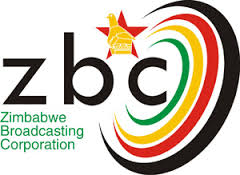Story by Yolanda Moyo
CONSUMERS in Bulawayo have raised concern over the increase of counterfeit goods in the city’s informal markets.
Dotted along busy streets and tucked into corners in high-density suburbs, a new breed of shops has sprouted.
The informal shops offer a convenient pit stop for residents, but a closer look reveals worrying facts as most of the goods are counterfeit.
From dishwashing liquid to baked beans, the tell-tale signs of counterfeits abound in blurry labels, misspelled brand names, and flimsier packaging.
These products, often sold at significantly lower prices, are finding their way into the hands of budget conscious shoppers.
“The products are cheaper compared to those in the formal shops and this makes one to prefer them. I have come across fake products a toothpaste you use it and realise this is not it and what hurts is that l would have bought it and no one will refund me,” said a consumer.
The source of the counterfeits is, however, a matter of contention.
“We buy them locally, from some people here downtown. They come here as early as five am and they tell us the products are from Harare and they are affordable compared to the same products coming from South Africa. As someone doing business we buy the cheaper ones to have profit,” said a vendor.
“Most of our products we get them from Botswana or South Africa. We buy Mazoe from Botswana and sell it at US$3 compared to the local price and any general person will buy the cheaper one,” noted another.
Consumer protection groups are urging residents to be cautious.
“We urge consumers to be vigilant and only buy from reputable sources. Look for genuine brand markings, check expiry dates, and if something seems too good to be true, it probably is. We also call on the responsible authorities to crack down on the production and distribution of these counterfeit goods,” Consumer Protection Commission Chairperson, Dr Mthokozisi Nkosi.
Experts warn that the counterfeit goods, particularly food products, come with serious health risks.
“Some of the food stuffs have heavy impurities such as heavy chemicals and metals and may interfere with people’s hormones and in the long term be associated with cancer. We need collaboration between health officials, consumer protection agencies, and law enforcement to tackle this issue. Public awareness campaigns are also crucial to educate people about the risks of food stuffs produced in factories that are not safe and certified,” explained Mpilo Hospital Clinical Director, Dr Solwayo Ngwenya.
The influx of counterfeit products highlights the need for a multi-pronged approach which includes effective regulation and enforcement of laws.





